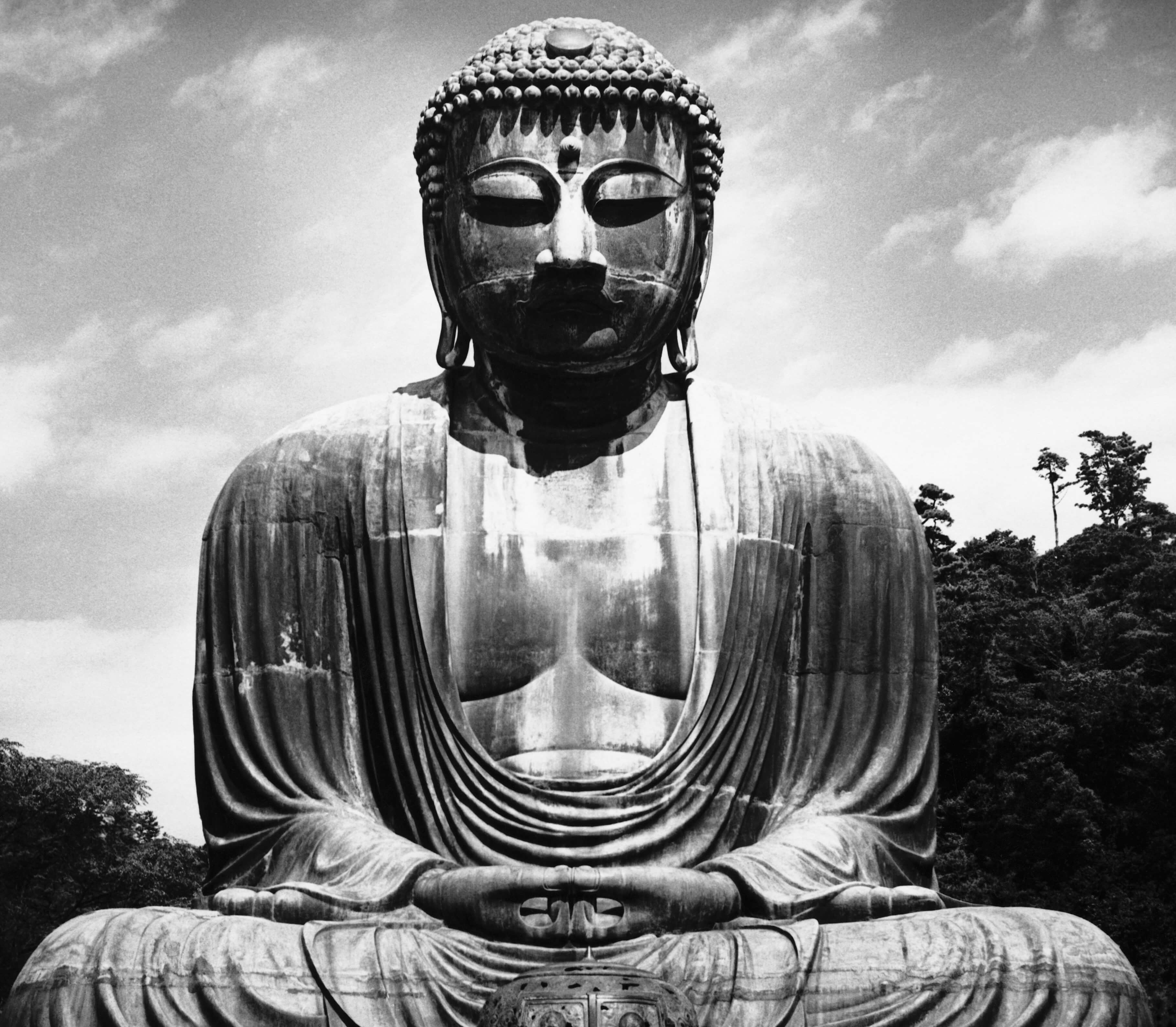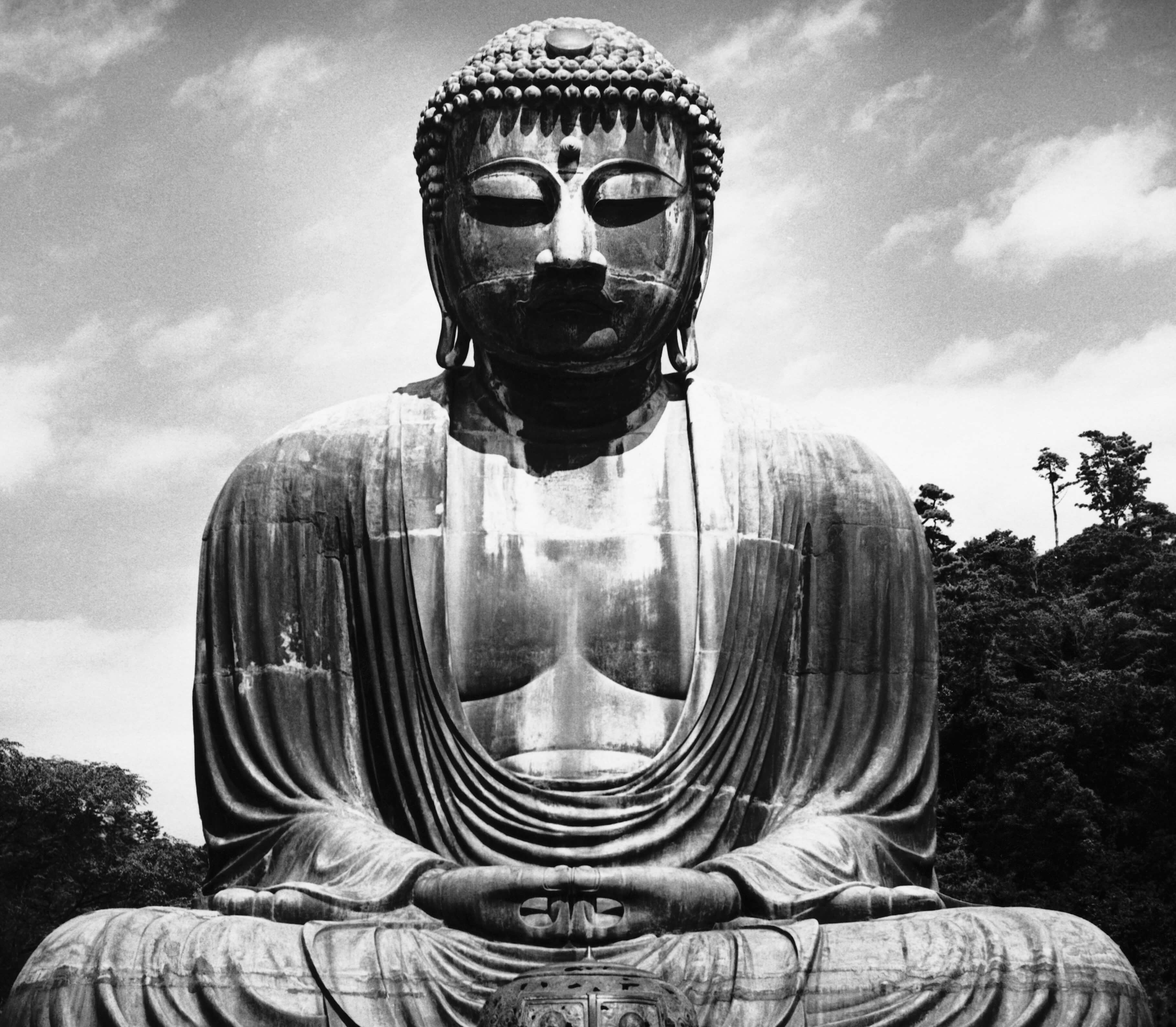
The Beatles’ ‘Tomorrow Never Knows’ Was Inspired by ‘The Tibetan Book of the Dead’
TL;DR:
- John Lennon wrote The Beatles’ “Tomorrow Never Knows” in his “Tibetan Book of the Dead period.”
- The opening line of the song is based on a Timothy Leary book discussing The Tibetan Book of the Dead.
- “Tomorrow Never Knows” was not the only example of 1960s music inspired by Eastern culture.

John Lennon had both positive and negative things to say about Buddhism. In addition, he said The Beatles’ “Tomorrow Never Knows” was inspired by The Tibetan Book of the Dead. Notably, The Tibetan Book of the Dead is one of the most famous Buddhist texts.
John Lennon respected Buddhism but he wasn’t trying to convert anyone
The book All We Are Saying: The Last Major Interview with John Lennon and Yoko Ono includes an interview from 1980. In it, John had a lot to say about religion. “Still, the whole religion business does suffer from the ‘Onward Christian Soldiers’ bit,” he said. “There’s too much talk about soldiers and marching and converting. I’m not pushing Buddhism, because I’m no more a Buddhist than I am a Christian, but there’s one thing I admire about the religion: There is no proselytizing.”
While John praised Buddhism, he felt Buddhists focused too much on Buddha himself. “Christ’s package had the Virgin Mary and the miracles and going into the desert,” he said. “Buddha had his whole package. But still the bare bones of the message is very similar to the Marxist message. Whether it be Christianity, Muhammadanism [sic], Buddhism, Confucianism, Marxism, Maoism, everything. They’re all about the person and not what the person said.”
‘Tibetan Book of the Dead’ and Ringo Starr inspired The Beatles’ ‘Tomorrow Never Knows’
Later in the interview, John was asked about The Beatles’ “Tomorrow Never Knows.” “That’s me in my Tibetan Book of the Dead period,” he said. “I took one of Ringo’s malapropisms as the title, to sort of take the edge off the heavy philosophical lyrics.”
The 1997 book Paul McCartney: Many Years From Now gives more details about “Tomorrow Never Knows.” It says John’s eyes lit up when he discovered a copy of Timothy Leary’s The Psychedelic Experience: A Manual Based on The Tibetan Book of the Dead. The introduction of the book includes the line “Whenever in doubt, turn off your mind, relax, float downstream.” This inspired the opening line of “Tomorrow Never Knows.”
The Beatles’ ‘Tomorrow Never Knows’ wasn’t their only song inspired by Eastern culture
“Tomorrow Never Knows” wasn’t the only 1960s song to take inspiration from Eastern culture. The Beatles’ “Norwegian Wood (This Bird Has Flown),” “Love You To,” and “Within You Without You” all draw from Indian music. Sgt. Pepper’s Lonely Hearts Club Band even features Indian guru Paramahansa Yogananda on its cover. The Rolling Stones also incorporated the sitar into hits like “Paint It Black” and “Mother’s Little Helper.” George Harrison only embraced Indian music more as he pursued a solo career.
“Tomorrow Never Knows” is a great song and it wouldn’t exist without The Tibetan Book of the Dead.


